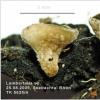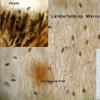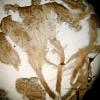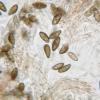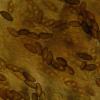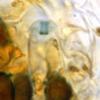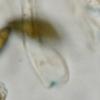
09-02-2026 20:10
 Lothar Krieglsteiner
Lothar Krieglsteiner
The first 6 tables show surely one species with 2

09-02-2026 14:46
Anna KlosGoedemiddag, Op donderdag 5 februari vonden we ti

02-02-2026 21:46
Margot en Geert VullingsOn a barkless poplar branch, we found hairy discs

07-02-2026 20:30
 Robin Isaksson
Robin Isaksson
Hi!Anyone that have this one and can sen it to me?

25-01-2026 23:23
Hello! I found this species that resembles Delitsc

05-02-2026 15:07
Found on a fallen needle of Pinus halepensis, diam
Lambertella sp.
Hermine Lotz-Winter,
02-09-2009 21:08
au bord d'un rivage dans le massif de Rhoen en Allemagne, altitude 500 m, sol bien mineralisé, sur un petit morceau de bois noirci j'ai trouvé trois ascocarpes sclerotinioides avec - c'etait une surprise - des spores brun foncès. Je crois c'est Lambertella, genre rarement trouvè et peu connu en Allemagne. Quelqu'un a une idèe des èspèces possibles?
At the bank of a mountain stream in the Rhön mountains in Germany, 500 m, well mineralized soil, on a little piece of blackened wood, I found 3 sclerotinioid ascocarps with - surprise for me - dark brown spores. I believe, it is Lambertella, seldom found and little known in Germany. Has somebody an idea, which species are possible?
Merci Hermine
Hans-Otto Baral,
02-09-2009 21:24

Re:Lambertella sp.
Liebe Hermine
there you have a difficult genus. really rare in Germany! I have very little experience here. To try the synoptic key on Lambertella, one needs at least the spore size range. Would it be possible to have larger images of the spores and the ascus apex in IKI? The blue stain looks strange, not Sclerotiniaceous. But I am sure it is a Lambertella.
Zotto
there you have a difficult genus. really rare in Germany! I have very little experience here. To try the synoptic key on Lambertella, one needs at least the spore size range. Would it be possible to have larger images of the spores and the ascus apex in IKI? The blue stain looks strange, not Sclerotiniaceous. But I am sure it is a Lambertella.
Zotto
Guy Garcia,
02-09-2009 22:00
Re:Lambertella sp.
Bonsoir Hermine,
Il y a peu de Lambertella décrits comme lignicoles. Ta récolte pourrait correspondre au Lambertella bouchetii Grelet.
Il y a aussi un Lambertella norvegica Raitv. & Järv. décrit sur branche morte de Betula nana mais les spores, plus grandes, présentent un septum central.
Amitiués, Guy
Il y a peu de Lambertella décrits comme lignicoles. Ta récolte pourrait correspondre au Lambertella bouchetii Grelet.
Il y a aussi un Lambertella norvegica Raitv. & Järv. décrit sur branche morte de Betula nana mais les spores, plus grandes, présentent un septum central.
Amitiués, Guy
Hermine Lotz-Winter,
03-09-2009 12:10
Re:Lambertella sp.
Bonjour Zotto et Guy,
merci pour les reponses. I did a bit of homework tonight :-)
The range of the spores I found was (11,0) 11,5 - 13,5 x 4,5 - 5,5 (6,0). They were free, when I had the first look, there were only few free spores. As you can see on the foto, partly they are a bit pinched at one side. The color in water is a sort light brown with an olive tinge. They seem to have small, blunt warts, which are a bit darker than the wall itself. In IKI spores get very much darker. There are nearly no hyaline spores in ripe asci.
Asci are very hyaline and delicate (apex cylindric, 120 x8), they collapse after having ejected spores, afterward showing this strange blue blob in my first photo. Intact Asci are a bit difficult to find, because the hymenium is very tightly packed and one has to press. The apical apparatus has a lower ring which gets dark blue with IKI, the upper ring ist not so dark blue, as the foto shows, the height ist 3 µ approx.
Paraphyses are hyaline (140 x 3), party branched on the top or with prolonged tip, in IKi they show yellow drops.
Hairs on the stalk are oppressed, rough, rounded at the tip and septate (30 - 60 x 4).
The excipulum does not stain distinctly with IKI, there is only a little brown-red colouration at the base.
I had another look on the substrate: it is only a small bit...could also be a petiole of some tree, Acer, Fraxinus?
@Zotto: you refer to the key of Korf/Zhuang? I have got it, but there a no real descriptions of the species, unfortunately.
Best regards
Hermine
merci pour les reponses. I did a bit of homework tonight :-)
The range of the spores I found was (11,0) 11,5 - 13,5 x 4,5 - 5,5 (6,0). They were free, when I had the first look, there were only few free spores. As you can see on the foto, partly they are a bit pinched at one side. The color in water is a sort light brown with an olive tinge. They seem to have small, blunt warts, which are a bit darker than the wall itself. In IKI spores get very much darker. There are nearly no hyaline spores in ripe asci.
Asci are very hyaline and delicate (apex cylindric, 120 x8), they collapse after having ejected spores, afterward showing this strange blue blob in my first photo. Intact Asci are a bit difficult to find, because the hymenium is very tightly packed and one has to press. The apical apparatus has a lower ring which gets dark blue with IKI, the upper ring ist not so dark blue, as the foto shows, the height ist 3 µ approx.
Paraphyses are hyaline (140 x 3), party branched on the top or with prolonged tip, in IKi they show yellow drops.
Hairs on the stalk are oppressed, rough, rounded at the tip and septate (30 - 60 x 4).
The excipulum does not stain distinctly with IKI, there is only a little brown-red colouration at the base.
I had another look on the substrate: it is only a small bit...could also be a petiole of some tree, Acer, Fraxinus?
@Zotto: you refer to the key of Korf/Zhuang? I have got it, but there a no real descriptions of the species, unfortunately.
Best regards
Hermine
Hans-Otto Baral,
03-09-2009 12:57

Re:Lambertella sp.
very good images! So the apical ring now looks very typical for Sclerotiniaceae. The substrate looks actually for the base of a petiole, perhaps Fraxinus. I will look at the key when I find time.
Did you look at the Lambertella on Olea leaves? Discussion in Ascofrance:
http://www.ascofrance.fr/index.php?r=forum&page=viewtopic&id=6400&highlight=lambertella#msg6406
Surely a different species. There were crystale in the excipulum which are quite exceptional in the genus,.
Zotto
Did you look at the Lambertella on Olea leaves? Discussion in Ascofrance:
http://www.ascofrance.fr/index.php?r=forum&page=viewtopic&id=6400&highlight=lambertella#msg6406
Surely a different species. There were crystale in the excipulum which are quite exceptional in the genus,.
Zotto
Hermine Lotz-Winter,
03-09-2009 16:27
Thank you, Zotto
I will try to look in the key, too.
Hermine
Hermine

